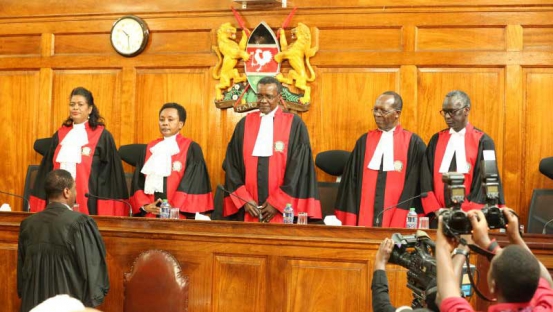×
The Standard e-Paper
Fearless, Trusted News

As expected by its critics, the Supreme Court has affirmed that it was more concerned about the process rather than the results of the August 8 presidential election.
In the majority ruling, whose full version was delivered today, the judges affirmed that an election is not about numbers neither is it an event but rather a process.